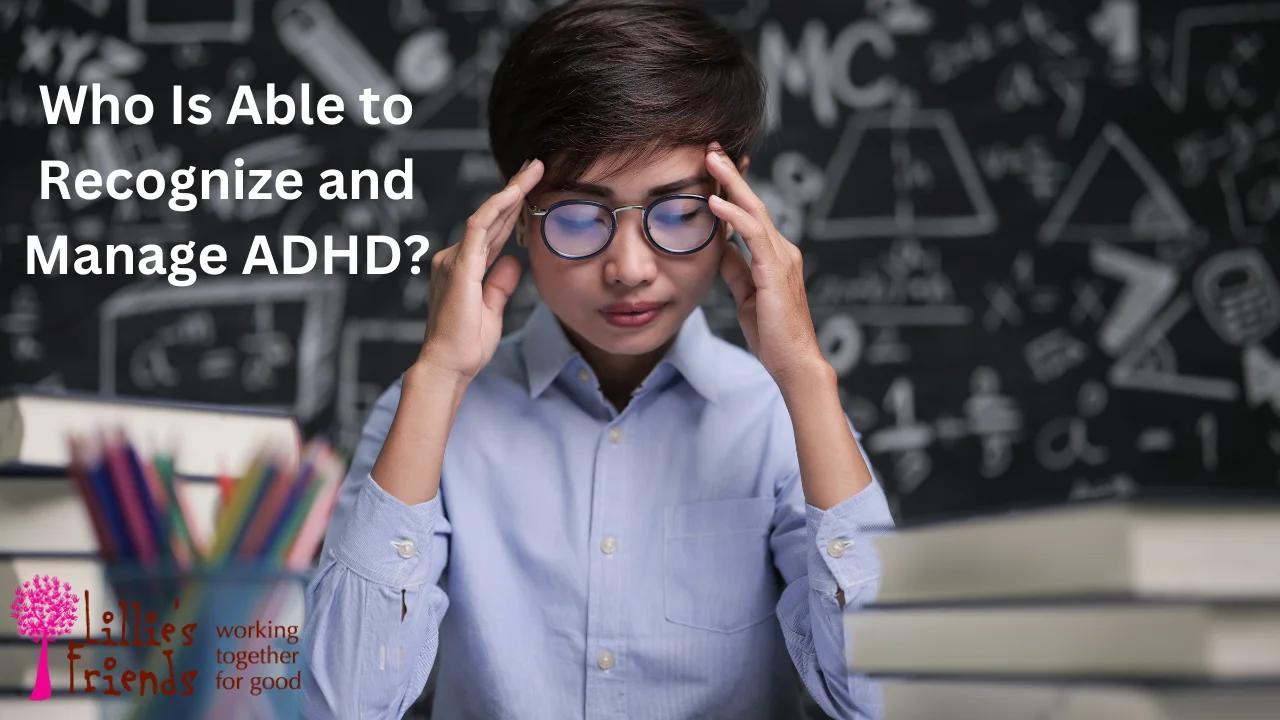ADHD: Primary Features
Persistent inattention or impulsivity and hyperactivity are two traits associated with ADHD. Three forms of the disorder—primarily inattentive, predominantly hyperactive, and combined—are distinguished by these characteristics. Any of these symptoms might have a big impact on day-to-day living. While the characteristics of each person and the kind of disease might influence the symptoms of ADHD in adults ↗, the following are the primary ones:| Symptoms of inattention | Symptoms of impulsivity and hyperactivity |
| difficulty concentrating and often making inadvertent mistakes. | inability to sit still, often tapping or squirming. |
| incapacity to plan activities and labor. | difficulty engaging in peaceful activities. |
| avoiding activities that require sustained mental effort. | excessive talking and meddling in the affairs or discussions of others. |
| losing items that are needed for daily chores on a frequent basis. | making snap judgments without considering the consequences. |
| being easily distracted by outside influences. | difficulty awaiting one’s turn. |
| neglecting ↗ to do regular chores. | Problems with impulse control lead to impulsive spending and other impulsive actions. |

Who Is Able to Recognize and Manage ADHD?
Various medical specialists possess the knowledge required to identify ADHD. When looking for assistance, think about speaking with the following experts:
- Primary care physician: To begin, speak with your primary care physician about your concerns. They can offer a treatment plan as well as preliminary advice.
- Psychiatrist: Since a psychiatrist focuses on mental health issues, you can discuss ADHD symptoms with this medical specialist. They might provide psychotherapy and write prescriptions for drugs.
- Psychologist: Psychologists are qualified to offer talk therapy, including cognitive behavioral therapy (CBT). Although they are unable to prescribe medication, they can assist you in creating coping mechanisms to manage the symptoms of ADHD.
- Therapists and counselors: Behavioral therapists, occupational therapists, and counselors can provide helpful methods for handling difficulties associated with ADHD.
Describe Your Symptoms of ADHD and Get Ready for an Appointment
Speaking in-depth with your healthcare professional is the first step in receiving an accurate diagnosis. Thus, it is crucial to prepare questions and acquire information ahead of time so that you are prepared to cover all the essential topics during your meeting. Before you go to a doctor about ADHD, consider the following factors, along with some suggestions for an appointment:
- Compile medical records. Be ready to talk about any past diagnoses, family history of ADHD or other mental health conditions, current medications, and other aspects of your medical history. Additionally, spend some time considering your
- The past, particularly any difficult educational situations, early conduct, or other instances where you believed your capacity to focus or pay attention was impaired.
- The list of symptoms. Make a thorough note of every symptom you observe. Add the challenges you face and the characteristics you have that might be linked to ADHD.
- Talk about the effects and be truthful. It’s critical to be open and truthful about how your symptoms impact your life. Explain how your everyday activities, relationships, job, and academic performance are impacted by your ADHD symptoms.
- Pose inquiries. Prepare a list of inquiries in advance. They could be linked to a diagnosis, current therapies, potential side effects of medications, counseling, self-help options, and coping strategies.
- Pay attention. If you are receiving treatment for ADHD, be sure to follow up with your doctor on a regular basis. You can talk about any problems and make the necessary changes while monitoring your development.
How Is ADHD Diagnosed by Physicians?
A detailed assessment of a patient’s symptoms, their effect on day-to-day functioning, and the particulars of their medical history are all part of the diagnostic process. In some situations, more than one visit may be necessary to diagnose ADHD, and the following procedures may be involved:
- A medical examination. You will talk about your symptoms, medical history, and any challenges you may be facing during an appointment. A medical professional might also ask about your family’s medical history. The doctor may also look for signs of hyperactivity, impulsivity, and attention span during the session. The Diagnostic and Statistical Manual of Mental Disorders (DSM)’s diagnostic criteria ↗ for ADHD will be used by the physician.
- Surveys. Standardized questionnaires that evaluate symptoms of ADHD may be given to you to complete. These give you a more comprehensive understanding of how you behave in various situations.
- A medical assessment. Your healthcare provider may refer you to specialists who perform a physical examination in order to rule out medical conditions that might be causing symptoms that are similar to those of ADHD.
- Psychological assessments. Neuropsychological tests can sometimes be used to evaluate cognitive abilities like impulse control, memory, and attention.
Can Doctors in Telemedicine Help You If You Have ADHD?
Accessing medical treatment, especially mental health help for problems like ADHD, has grown easier with the advent of telemedicine.
Things to Discuss with Your Physician About ADHD
You may ask any questions you want about your mental health symptoms, strategies for managing them, and other relevant topics during your confidential appointment with a mental health specialist. You may inquire about ADHD with your psychiatrist or another medical expert by asking the following questions:
- Which typical symptoms of ADHD are there, and how do they manifest?
- How is ADHD identified or evaluated?
- Which choices are there for treatment?
- What are the possible benefits and drawbacks of the suggested course of treatment?
- In what ways might nutritional changes, counseling, and support groups aid in the treatment of ADHD?
- How do you continue long-term management, and how often should you schedule follow-up appointments?
- Do you currently take any other drugs that might interfere with the one you are taking for ADHD?
- Do any techniques exist that improve time management, planning, and concentration?
- What equipment or learning materials would you recommend for a deeper comprehension of ADHD?
Being aware of the signs of ADHD and the therapies that are available may help you increase productivity, build better connections with loved ones, and create coping mechanisms. You may develop self-acceptance and self-compassion via the diagnosis and therapy process, which will enable you to recognize your advantages and disadvantages.
In summary
An accurate diagnosis of ADHD and an appropriate treatment plan depend on open and honest discussion with a qualified healthcare professional.
FAQ
Is it hard to make an ADHD diagnosis?
Although there are numerous standardized criteria, there isn't a single conclusive test. In order to help a mental health professional make an accurate diagnosis, you might be given questionnaires and put through other tests if you ask your doctor if you have ADHD. During a comprehensive evaluation, skilled healthcare professionals can differentiate between co-occurring conditions and ADHD, even though symptoms may occasionally overlap.
What is ADHD commonly mistaken for in adults?
The symptoms of depression and anxiety disorders may resemble those of ADHD in adults. For instance, there are several conditions that can be responsible for restlessness, impulsivity, and distractibility. It may take some time to correctly diagnose attention deficit hyperactivity disorder (ADHD), but it is possible to recognize its distinctive features.
What is the treatment for adults with ADHD?
Adults with ADHD typically need a mix of treatment approaches. Some of these could include counseling, behavioral therapies, drugs, and different self-help methods. Both stimulant and non-stimulant drugs can help control symptoms, and therapy and counseling can help people learn healthy coping mechanisms. Adapting one's lifestyle to the difficulties presented by symptoms of ADHD can significantly improve one's quality of life.
What happens if ADHD remains untreated?
Untreated ADHD can lead to difficulties in a variety of spheres of life, including relationships, employment, and emotional stability. ADHD that is ignored increases the risk of mental health issues and can result in subpar performance in school and the workplace. Because a mental health professional can validate your experiences, offer treatment recommendations, and help you better understand your symptoms, it is crucial that you seek professional assistance.
Can you live with ADHD without medication?
Non-pharmacological approaches like therapy, coping mechanisms, lifestyle modifications, and regimented routines can help people manage ADHD. These methods can successfully lessen symptoms and enhance general well-being. The choice of treatment is based on the needs and preferences of the individual; if your symptoms are intolerable, you may want to talk to a doctor about starting ADHD medication.











